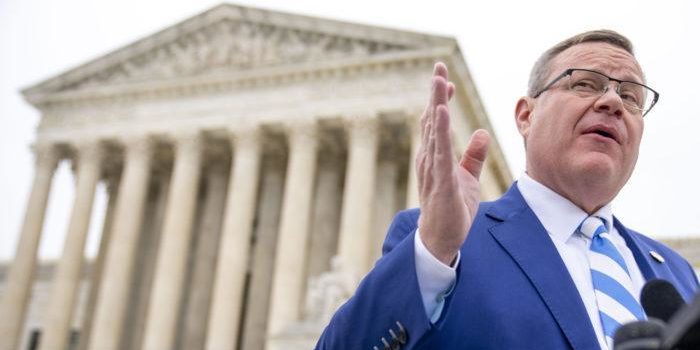However, the Republican lawmakers, led by House Speaker Tim Moore, wound up getting the last laugh in the long run.
In Moore v. Harper, the latest in a long series of clashes between state lawmakers and left-wing activists over redistricting to make it to the high court, the central question was whether the U.S. Constitution’s elections clause carved out an exception to the process of judicial review by specifically enumerating that authority to the state legislatures.
The court’s leftist block sided with its squishy centrist trio of Roberts, Kavanaugh and Barrett to argue that “State courts retain the authority to apply state constitutional restraints when legislatures act under the power conferred upon them by the Elections Clause”—although there were bounds as to what the courts had the authority to do.
The case questioned whether the judicial branch can nullify redistricting maps created by the General Assembly.
North Carolina’s Supreme Court in 2022 ruled the redistricting plan excessively partisan. However, the court’s leftist majority was flipped conservative in the following year’s midterm elections, which the makeup of the panel.
The new panel reversed that decision earlier this year, allowing the legislature to keep its original maps and rendering the current case moot to some extent, but relevant in case the issue should arise in the future.
Because of the latest move by the state’s highest court, Justices Samuel Alito, Clarence Thomas and Neil Gorsuch dissented and said they would have dismissed the case.
“Justice Thomas is right, the case is over, and the legislators won, today’s SCOTUS opinion doesn’t change that,” said Jeanette Doran, president and general counsel of the NC Institute for Constitutional Law.
Decisions on voting rights cases involving Alabama and Louisiana had already happened this month. A case in Ohio remains pending, should the bench wish to issue another ruling prior to the 2024 election cycle.

